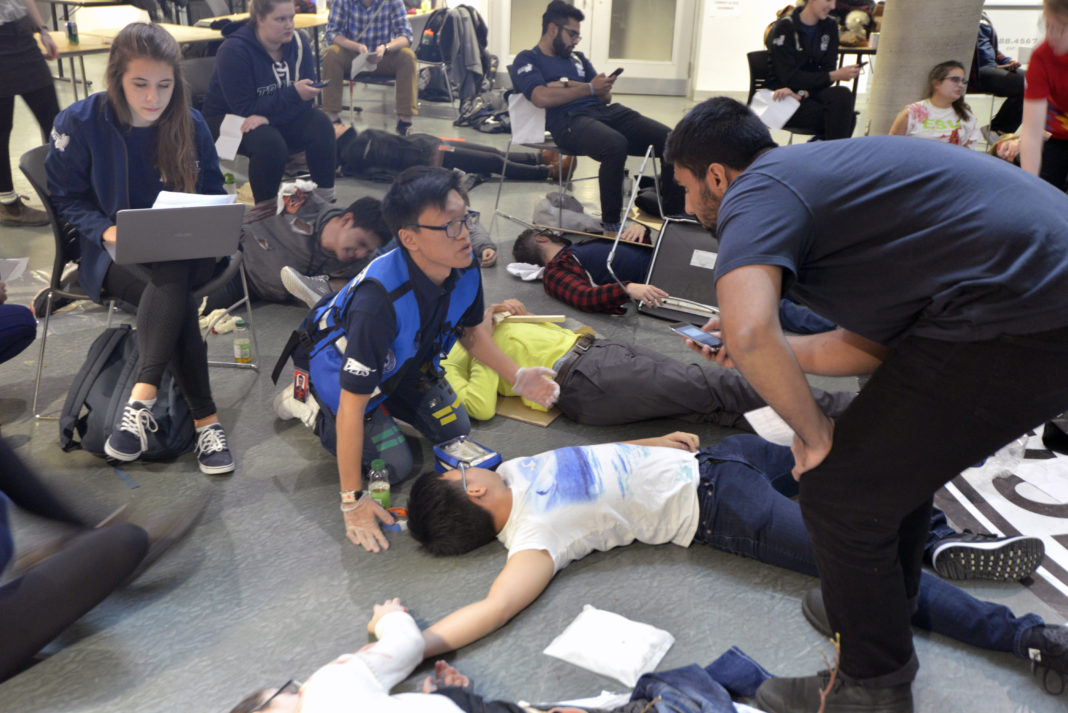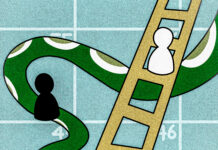After a year of global natural disasters, the world’s end arrived to the University of Waterloo this past weekend, bringing with it campus response teams from across the nation.
Presented by the UW Campus Response Team (UWCRT), the “World’s End” conference marked the annual “mixer” event under the Association of Campus Emergency Response Teams (ACERT), a volunteer-based administrative body for the coordination and development of Canadian post-secondary campus response groups.
The three day mixer is so named because it brings together members of various campus response teams for a combination of lectures, skill-testing competitions, and networking opportunities.
“The point of it is to allow teams from across Canada to intermingle, learn from each other, [and] make connections across campuses,” said Dorothy Soares, a fourth year honours science student and conference committee member. “We are all first responders and you can learn a lot from other teams.”
“It’s just to make sure everyone’s kind of on the same page, and if they’re not, to bring them up to speed,” said fellow committee member and biomedical science student, Thilina Krishnanand. “It’s mostly [about] advancing our teams and keeping responders’ skills up to par.”
During the Nov. 18 competition portion of the conference, students were put through their paces with 10 scenarios of up to 10 minutes each, the results of which were judged on the spot by impartial volunteers.
During these simulations, responders were exposed to the varying operating procedures of other response teams.
So as to respond effectively to the situation at hand, the students strove to overcome this variance with minimal planning, as would be the case in a real-world scenario.
After each scenario, teams were awarded points according to their performance in a variety of categories including communication, professionalism, scene survey, scene management, patient treatment, and emergency call quality.
The three top-scoring teams from the first round of competition advanced to the Nov. 19 finals, known as the mass casualty simulation.
Held in the basement of the SLC, this final stage of competition saw a number of volunteers — each sporting special effects make up to indicate their wounds — act out the simulation of a large-scale catastrophe to which the top three teams then attempted to respond.
The team which received the highest scoring — having completed the task the most thoroughly, quickly, and effectively — was named the winner.
This year’s first place team, dubbed Team Golf, was comprised of three students from the universities of Carleton, Western and Trent.
Although the competition provides a point of bragging rights to the teams, according to Soares, the importance of the conference goes far beyond rankings.
“It’s not just students here [on campus],” she said. “We have faculty, we have staff … we even have some people bringing in their children and camps running over summer, so being able to respond to a variety of injuries … is great because you don’t want to reach a scenario and [think], ‘I don’t know what to do, I can’t help you.’”
While ACERT annual general meetings act as a liaison for the communication of teams’ needs, conferences such as the mixer also provide valuable discussion time between response bodies to trade advice and resources.
Beyond this, noted Krishnanand, the conference is simply a good experience to build memories.
“It’s like a three day holiday,” he said.
Complete with a banquet component, this social aspect is also a priority for the mixer, and allows campus response teams to get to know one another.
“I have met so many different people from across campuses and I am still friends with them now,” Soares recalled of her past conference experiences. “It’s just a great time and everyone’s just so friendly.”
Having been involved with UWCRT since 2014, Soares has not only participated in the simulation, but volunteered as a casualty and, after noting the friendly dynamic between responders, joined the team herself.
To this day, Soares continues to enjoy UWCRT not only for its contribution to her personal growth, but also, as a manner of giving back to the campus community.
A two year member of UWCRT, Krishnanand too enjoys the selfless nature of ACERT’s work.
“They dedicate their time and effort into helping people without getting much back,” he said. “It’s just making sure [that] the community’s safer.”
In a planning process which began six to eight months ago, the conference required a great deal of time and effort on behalf of the UWCRT planning committee.
According to Krishnanand, this planning process meant that UWCRT had a much different experience of the event than visiting teams, but held one hope for planners and participants alike.
“I hope they had a lot of fun.”































